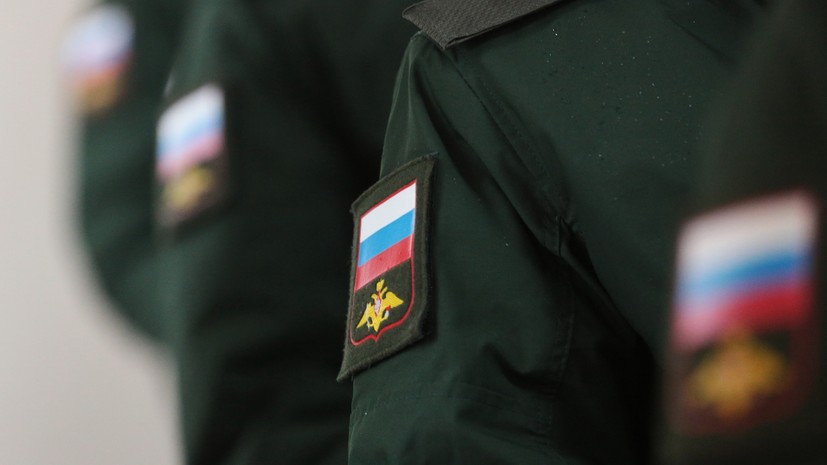Russian President Vladimir Putin signed a decree on the spring conscription into the army in April-July 2023. The document, published on March 30 on the website of legal information, says that 1 thousand people are subject to recruitment into the armed forces from April 15 to July 147.
The presidential decree also provides for the dismissal from military service of soldiers, sailors, sergeants and petty officers whose term of military service on conscription has expired. The document comes into force from the moment of signing.
At a briefing on March 31, the head of the Main Organizational and Mobilization Directorate of the General Staff of the Russian Armed Forces, Rear Admiral Vladimir Tsimlyansky, said that all conscripts drafted into the army as part of the spring conscription of 2023 will serve in points of permanent deployment in Russia.
A third of the conscripts will be sent to training units and units for up to five months in order to master modern military equipment and obtain a military registration specialty.
At the end of military service, conscripts will be sent home.
Electronic alert
The rear admiral also assured that there is no second wave of mobilization in the plans of the General Staff.
"I want to assure you all that there are no plans for a second wave of mobilization. Those who have already been called up for military service, as well as citizens who voluntarily expressed a desire to participate in the operation, are quite enough to perform the assigned tasks, "Tsimlyansky emphasized.
During the current spring conscription, conscripts will also be notified electronically for the first time.
"Taking into account the positive effect of the measures taken, the employees of the military commissariats were tasked in preparation for the spring conscription campaign, which begins on April 1, to notify citizens in electronic form," the rear admiral said.
At the same time, no one refuses paper summonses: in cases where the recruit does not have the technical ability to receive an electronic summons, he will be handed the usual one.
In his speech at a briefing on March 31, Vladimir Tsimlyansky noted that this year the military registration has already taken place in electronic format. Based on the information received, the Ministry of Defense formed a single electronic database in order to avoid cases of "unjustified conscription of citizens for military service" in the future.
This year, young men born in 2006, who turn 2023 in 17, were summoned to military registration to military registration. In total, more than 700 thousand people were registered.
On the eve of the signing of the presidential decree on the spring conscription of 2023, the Chairman of the State Duma Committee on Defense Andrei Kartapolov said that the young men drafted into the army this spring will serve far from the line of contact - none of them will be sent to serve in the new subjects of the Russian Federation: donetsk and Lugansk republics, as well as Zaporozhye and Kherson regions.
"In the Donetsk and Lugansk republics, Kherson and Zaporizhia regions this spring, the draft will not be held at all," Interfax quoted Kartapolov as saying.
The chairman of the Duma Committee on Defense also mentioned the recent bill on raising the draft age in Russia - according to him, these changes will not exactly affect conscripts in 2023.
He added that parliamentarians will consider this bill only after April 17.
Recall that the proposal to raise the draft age was submitted to the State Duma on March 13. The initiative assumes that in 2024 citizens aged 19 to 30 years will be subject to conscription for military service, in 2025 - from 20 to 30 years, in 2026 - from 21 to 30 years.
"In order to guarantee the receipt by citizens of both secondary general education and secondary vocational or higher education, it is proposed to gradually increase the lower limit of the conscription age to 21 years (currently from 18 years)," the authors of the initiative, headed by the chairman of the Duma Defense Committee, Andrei Kartapolov, note.
In the explanatory note to the bill, the parliamentarians stressed that the proposed changes are aimed at the qualitative development of the army and will reduce the financial costs of "organizing and conducting medical examinations of conscripts receiving general secondary or secondary vocational education."

